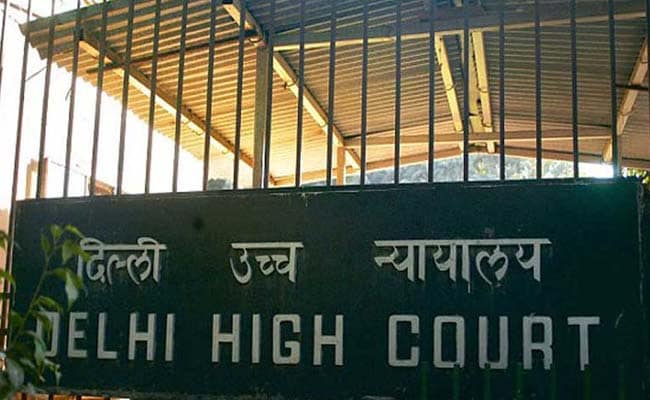
The Delhi High Court has directed the police agencies to forward sexually explicit material relating to a 24-year-old woman, who was a minor when the pictures were taken, to the National Crime Record Bureau (NCRB) for notifying the objectionable contents for removal from the Internet.
The high court also directed Facebook and Google to remove the offending contents and URLs from their platforms.
It also directed the police authorities to use protocols and resources available with the NCRB and other concerned agencies to identify persons who are reloading the offensive contents on the Internet in India and take action against them.
In the circumstances, this court directs the concerned police agencies to forward offending material relating to the petitioner, which undeniably falls within the scope of sexually explicit material relating to a child, to the NCRB.
"The NCRB shall also use the protocols available in terms of the Memorandum of Understanding entered into with NCMEC or otherwise to notify the offending material in order that the same can be actioned and removed from other platforms as well," Justice VIbhu Bakhru said.
National Centre for Missing and Exploited Children (NCMEC) is a non-profit organisation involved in helping to find missing children, reduce child sexual exploitation, and prevent child victimisation.
The court's order came on a petition by a young woman, who was 16-year-old in 2012 when she became friends with a boy of her class and entered into a relationship that later on became abusive.
The woman said the boy used to emotionally blackmail her and compelled her to send her intimate photographs to him. She succumbed to the tactics and started sending him her ''intimate pictures''. Later, she broke up her relations with him and went abroad for higher studies, the plea said.
However, the boy kept troubling her and even went abroad where he tried to throttle her after which a court there passed orders restraining him from contacting her.
She claimed that in 2019, she came to know that the man had posted her intimate pictures on various platforms such as Twitter, Instagram, and YouTube and the uploaded photographs were the same that were sent by her to him when she was a minor.
He misused the photographs and uploaded them on the Internet, she said, adding that she lodged an FIR against him with the Special Cell, Cyber Crime Department of Delhi Police, and also contacted the social media platforms for removing the objectionable photographs.
However, when the webpages/ URLs were not removed, she approached the court seeking relief.
Noting that even after removal of the URLs, further webpages containing the offending images had been uploaded on Instagram, YouTube, and other platforms, the court said it appeared that the offending images had been widely distributed and they are also being uploaded by several persons other than the accused.
"This brought into sharp focus the problem of preventing circulation of identified objectionable material on the platforms operated on the net," it said.
The court said, "Given the statutory framework, it would be necessary for the intermediaries to take all effective measures that may be available with them to ensure that the child porn (CP) content is not hosted on their platforms."
It noted that the affidavits filed by Facebook and Google also indicate that they are using Artificial Intelligence (AI) and other tools to remove the offending content from their platforms.
The Central government, represented through standing counsel Anurag Ahluwalia, said that NCRB acts as a nodal agency for technical and operational functions of On-Line Cyber Reporting Portal: "www.cybercrime.gov.in."
The incidents reported on the portal are shared with law enforcement agencies. NCRB has also entered into a Memorandum of Understanding (MoU) with NCMEC to receive Cyber Tipline reports relating to suspected child porn content, he said.
Facebook, in its affidavit, affirmed that it has implemented a number of measures to combat the spread of child porn including working with NCMEC and once it identifies a child porn image on its platforms, it immediately removes the same.
Google LLC, in its affidavit, claimed that it has adopted various protocols to deal with child pornography or child sexual abuse materials on its YouTube platform.
Google also stated that it has issued robust Community Standards and Policies that prohibit its users from uploading any content that endangers the emotional and physical well being of minors.
Track Latest News Live on NDTV.com and get news updates from India and around the world

